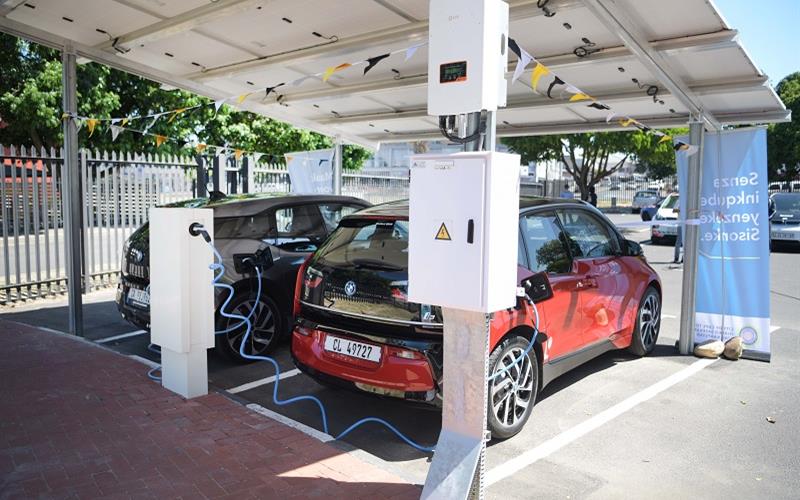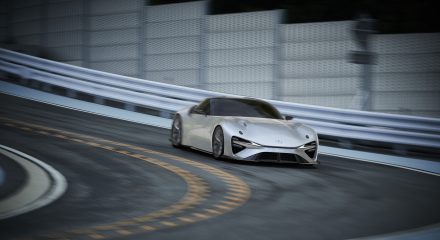Free electric car charging station opens in Cape Town

The Mother City opened its first, free-to-use, solar-powered electric vehicle (EV) charging station on Wednesday [December 2].
The public charging station is located in Bellville Civic Centre and will be free of charge for two years. The station was donated to the City by the United Nations Industrial Development Organisation (UNIDO). Another station is planned for Somerset West soon, according to the City.
“The sites were chosen because of their convenient, safe and visible locations. The chargers were donated to the City by the United Nations Industrial Development Organisation (UNIDO). eMobility offers an opportunity to create a healthier, more inclusive city, and one that uses a proactive climate change response to help drive the COVID-19 recovery,” said the City of Cape Town in a statement.
The City continued: “The City is supporting the uptake of eMobility for all and is developing initiatives to drive the growth of this technology in Cape Town, so that it can become more accessible and rolled out in the future to benefit all Capetonians. The donated charging stations have been installed in the parking areas of the Bellville and Somerset West civic centres. The charging station in Somerset West will be opened to members of the public soon.”
There is a global uptick in EV purchases rather than fuel-powered cars. A number of countries, including the United Kingdom, have set dates to ban the sale of internal combustion engine (ICE) entirely.
People are growing far more conscious of their impact on the planet and a move to an EV is a step in the right direction.
Cape Town and car emissions:
-
Transport is the second biggest contributor to the carbon intensity of Cape Town’s economy. This is exacerbated by urban sprawl and the long distances freight has to travel over a country as large as South Africa.
-
Increased congestion and inefficiencies not only increase the city’s transport-related greenhouse gas emissions (GHGs), largely driving climate change, they worsen air quality and contribute to adverse health impacts on residents.
How it works:
-
A motorist with an EV drives up to the charging station. Depending on the car, reversing into the space may provide the best access to the charger.
-
Limitless charging is offered and the car’s charge card will be required to start the charge.
-
Using their own cable, users will connect the cable to the charger and then to the car. This initiates the charge. Users can then simply lock their car and attend to other business. The system will be secure and the cable cannot be released. Unlocking the car will stop the charge and release the cable.
-
The length of charge required will depend on the car and charge cable. But it takes roughly three hours to charge the battery from close to 0% to 80% for this particular 22 kW Dual AC charger.
-
How long a charge lasts will depend on the car and driving style. A three-hour charge can last roughly 150km depending on which vehicle one uses.
-
The charging stations will be closed at night.
EV positives
-
EVs have no tailpipe emissions, so could contribute significantly to a reduction in local air pollution and thus result in improved health benefits.
-
As less crude oil will be imported, EVs will also positively impact on the country’s current account balance.
-
EVs can reduce transport-related GHG emissions, which currently account for about 34% of the carbon emissions in the city, and help us meet our climate change targets.
-
EVs are more efficient than ICE vehicles, producing about 30% less GHG emissions, even with most of our electricity from Eskom being produced from coal.
-
With the greening of South Africa’s grid, the environmental benefits of EVs will increase further.
-
EVs are considerably cheaper to run with very low maintenance requirements and as the upfront cost of EVs comes down, electric mobility can provide cost-effective transport for all Capetonians.
-
The local economy can continue to trade competitively in a global world that is rapidly rejecting carbon intensive goods and services.
Picture: The City of Cape Town







